Uncertainty reigns as schools re-open amid coronavirus pandemic
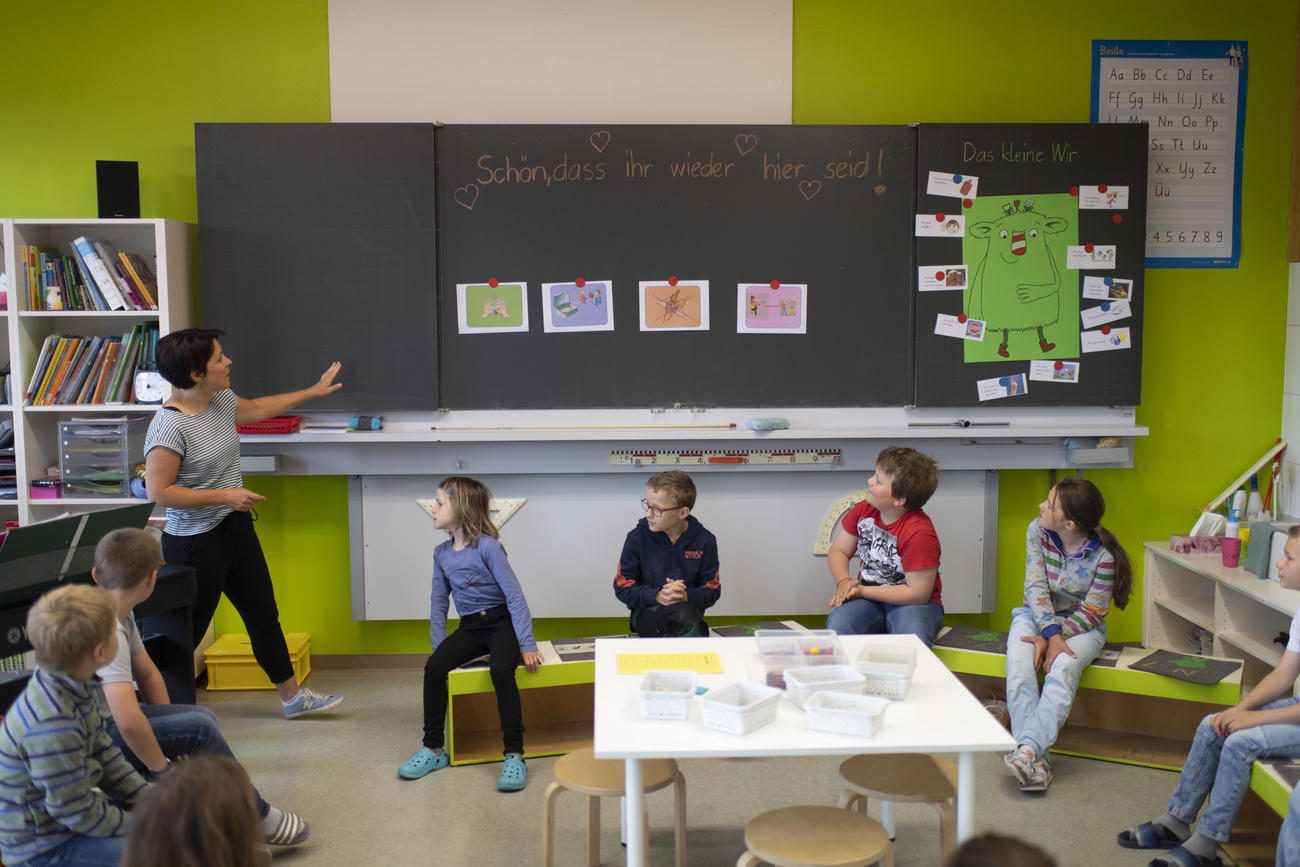
Thousands of children have returned to class on Monday, as Switzerland re-opens its compulsory schools after two months of coronavirus lockdown. But feelings - and the cantonal approaches - are mixed.
“I am so happy about going back to school because I’ve had enough of distance learning,” Emile, aged 7, from Geneva, told the Le Temps newspaperExternal link ahead of his primary school re-opening its doors. “I’ve only seen one friend during lockdown, so I can’t wait to see my classmates again.”
But other pupils are not so sure. “I don’t really want to go back to school. I really liked the lockdown because you can get up whenever you want and have your own timetable. I even found the schoolwork easier,” said Nina, aged ten, from Fribourg, in the same article.
On May 11, all compulsory schools (with pupils up to the age of 16) are re-opening. Under Switzerland’s federal system, it’s the cantons that are in charge of educational matters – hence they have the last say in what happens.
Cantonal mix
While the majority of German-speaking cantons have opted for “almost back to normal” – allowing pupils to follow the regular school timetable – many in French-speaking SwitzerlandExternal link, and in German-speaking cantons Zurich (all more strongly affected by the coronavirus) and St Gallen (less so) have decided for a step-by-step approach.
Here, classes will be divided into two, with alternating schedules, for up to four weeks, before full classes resume.
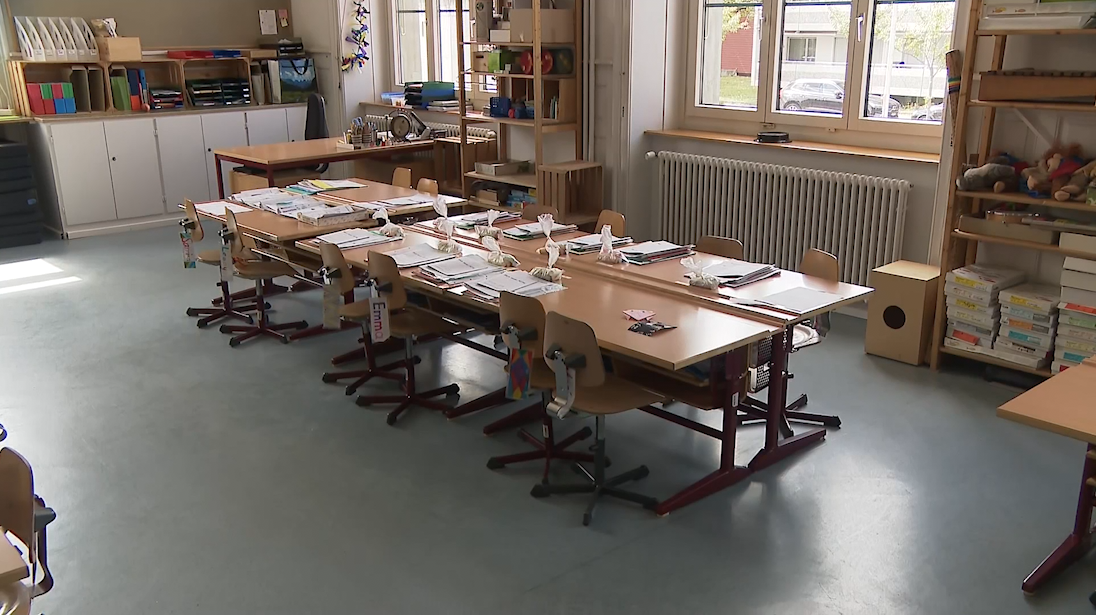
More
How schools will re-open in canton Zurich
The most strongly affected canton, Ticino, will use the half-class system. Schools there are also allowed a week’s delay before re-opening.
+ The latest on the coronavirus numbers in Switzerland
All cantons are keeping to national safety requirements drawn up by the Federal Office of Public HealthExternal link, which include handwashing, not sharing snacks and social distancing (although children among themselves are exempt from distancing rules), but no masks. High-risk students and teachers and those who live with high-risk family members will continue with distance learning.
#CoronaInfoCHExternal link Coronavirus and school: The short film shows pupils what impact the coronavirus is going to have on life at school. It explains how they can protect themselves and reminds them of the rules about handwashing and greeting people. pic.twitter.com/v1x0r7N2E5External link
— BAG – OFSP – UFSP (@BAG_OFSP_UFSP) May 8, 2020External link
Worried parents
As can be seen in the video above, not all parents are happy with the mix of approaches. In canton Zurich, over 7,000 parents have signed a petitionExternal link calling for a full return to school, arguing that it will be a strain on parents to juggle children’s split schedules. Several French-speaking cantons have seen petitions against the re-opening altogether, citing health concerns and fears of a second wave of infections (and in Basel City, there are calls for a staggered, rather than full, return).
Parents contacted by swissinfo.ch also had mixed feelings. “It seems like a huge leap to go from home-schooling to full classes in just a few days,” commented one from canton Bern, which has two days of staggered classes before going into the full timetable.
Another felt getting her first-year kindergarten daughter, who had enjoyed being at home, back into the school routine might be a challenge. The re-opening of many businesses and public transport at the same time was also causing concern, because of more people moving about.
Children as transmitters?
Another factor causing uncertainty is the role that children play in transmitting the coronavirus. Switzerland says children do not play a big role. But a German studyExternal link has suggested adults and children carry similar viral loads.
Switzerland’s National COVID-19 Science Task Force, an independent body, has meanwhile stated that the role of children and adolescents in the transmission of SARS-Cov-2 was “highly uncertain”.
+ Here’s more on what the head of Covid-19 task force has to say on schools
+ Our fact check on children as drivers of the pandemic
Adjustments for teachers
For their part, teachers are looking forward to compulsory schools re-opening and to interacting with their pupils in the classroom, Beat Schwendimann, board member of the Swiss Teachers’ Federation (LCH), told swissinfo.ch.
Some adjustments will be needed. “Students will re-enter schools with different levels depending on their progress while learning from home. It will be important to teachers to support students who fell behind,” Schwendimann said in an email.
+ School barometer: one fifth of pupils ‘falling through the remote learning net’
Reports suggest that some students did not turn up to online lessons, had no access to computers or lacked parental support. Concerns have already been raised that any long-term distance learning could contribute to widening Switzerland’s already established educational gap. This is another reason why there has been a keenness to re-open schools.
In terms of safety measures, schools are working hard to implement cantonal and national safety protocols, Schwendimann commented. The LCH would nevertheless have preferred a coordinated, nationwide approach to re-opening schools.
“The LCH asks the government and health officials to closely monitor the development in schools after the reopening and adjust safety procedures as needed,” Schwendimann added.
Around Europe
Denmark was the first European country to re-open some schools, Norway has followed suit. France will also be gradually re-opening its creches and primary schools from May 11 on a voluntary basis. Chancellor Merkel announced that Germany schools will progressively open in the summer term (some pupils have already gone back). In Austria some older pupils went back May 4, younger pupils will start May 18 and all pupils by beginning of June. Italy will re-open schools in September.

In compliance with the JTI standards
More: SWI swissinfo.ch certified by the Journalism Trust Initiative

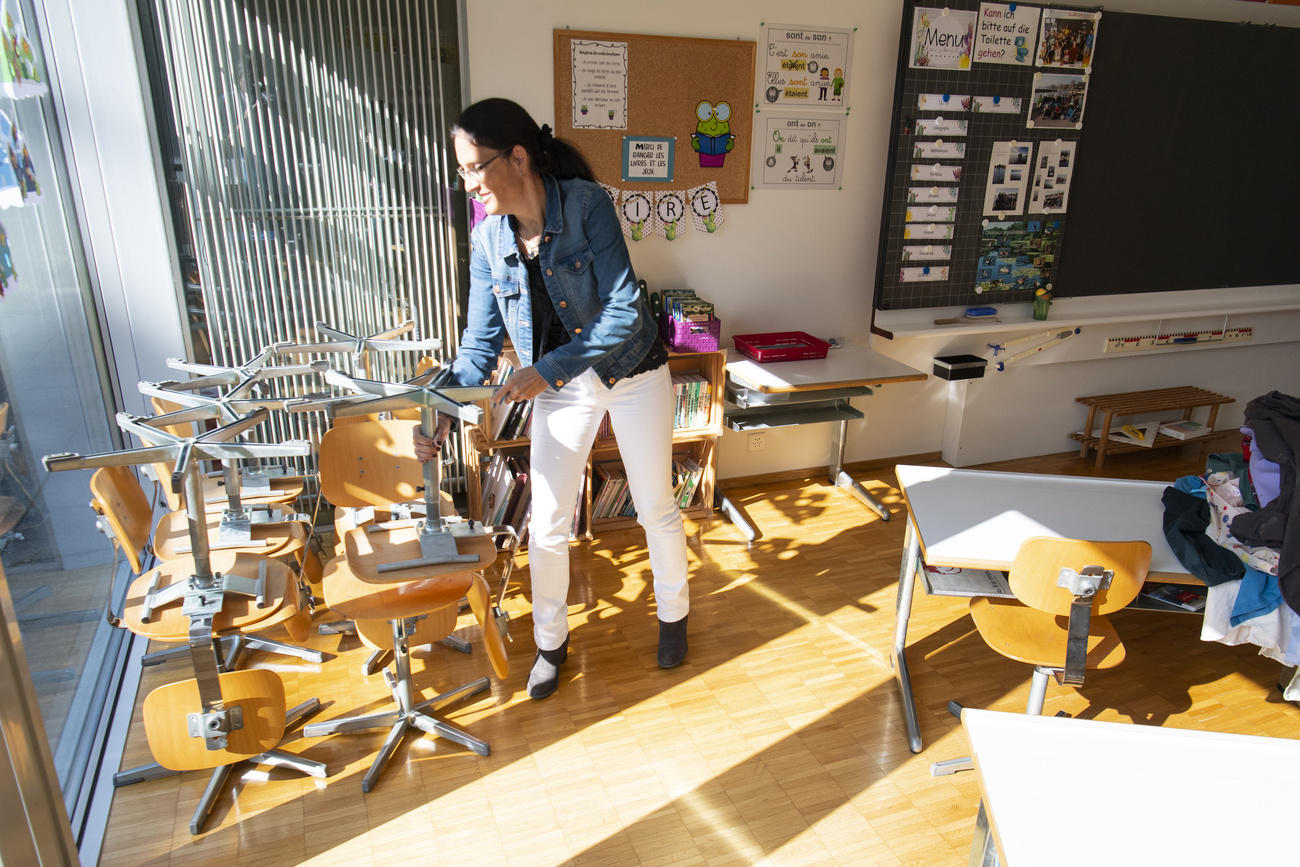
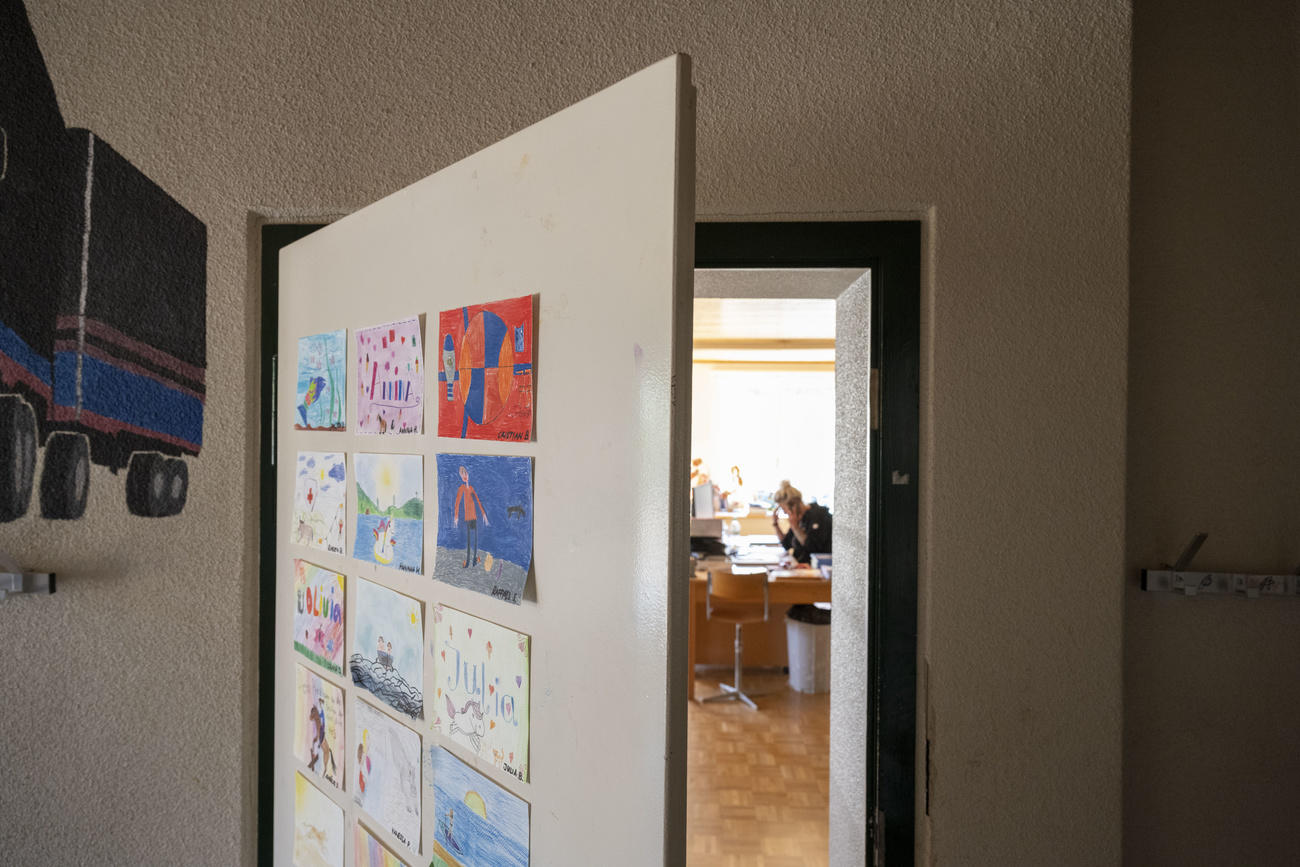
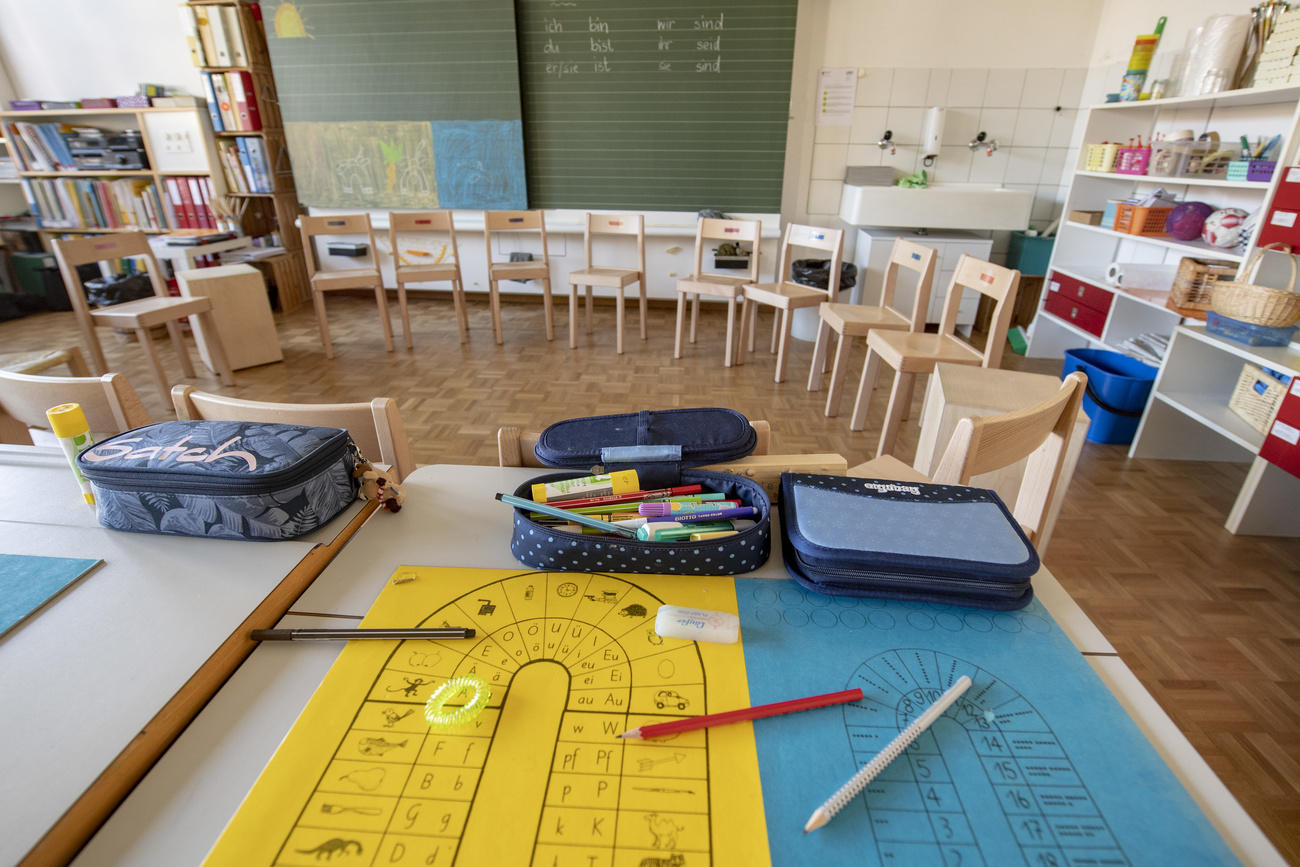
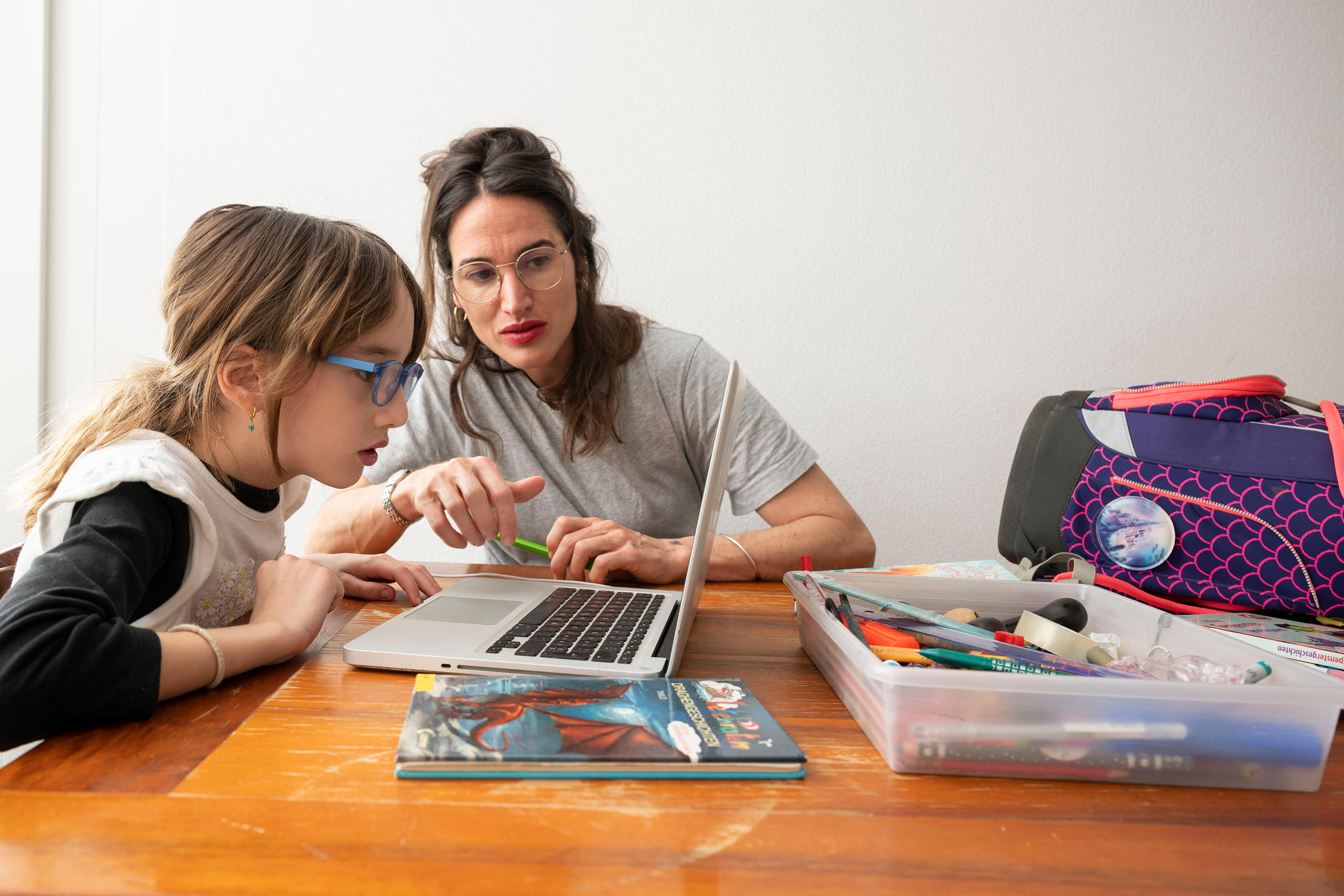
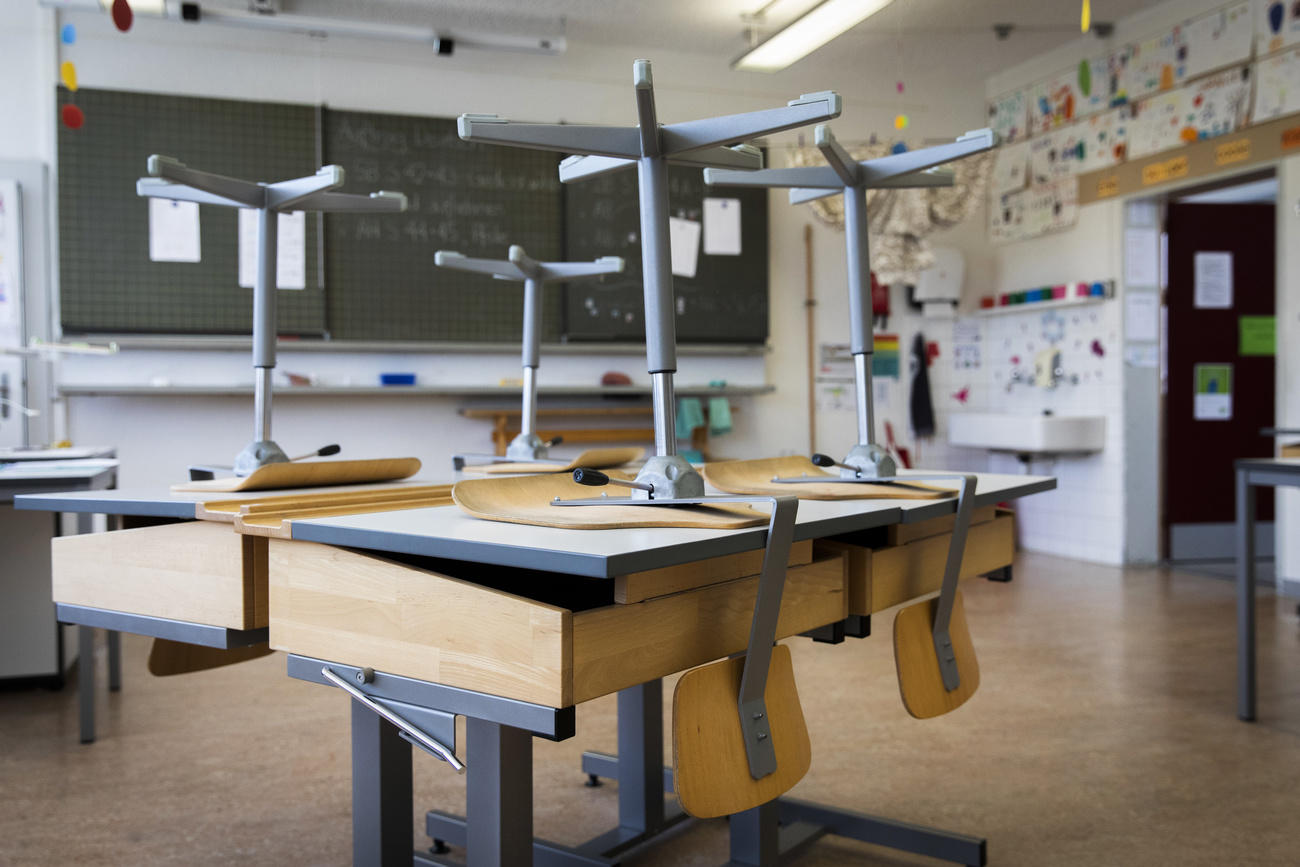
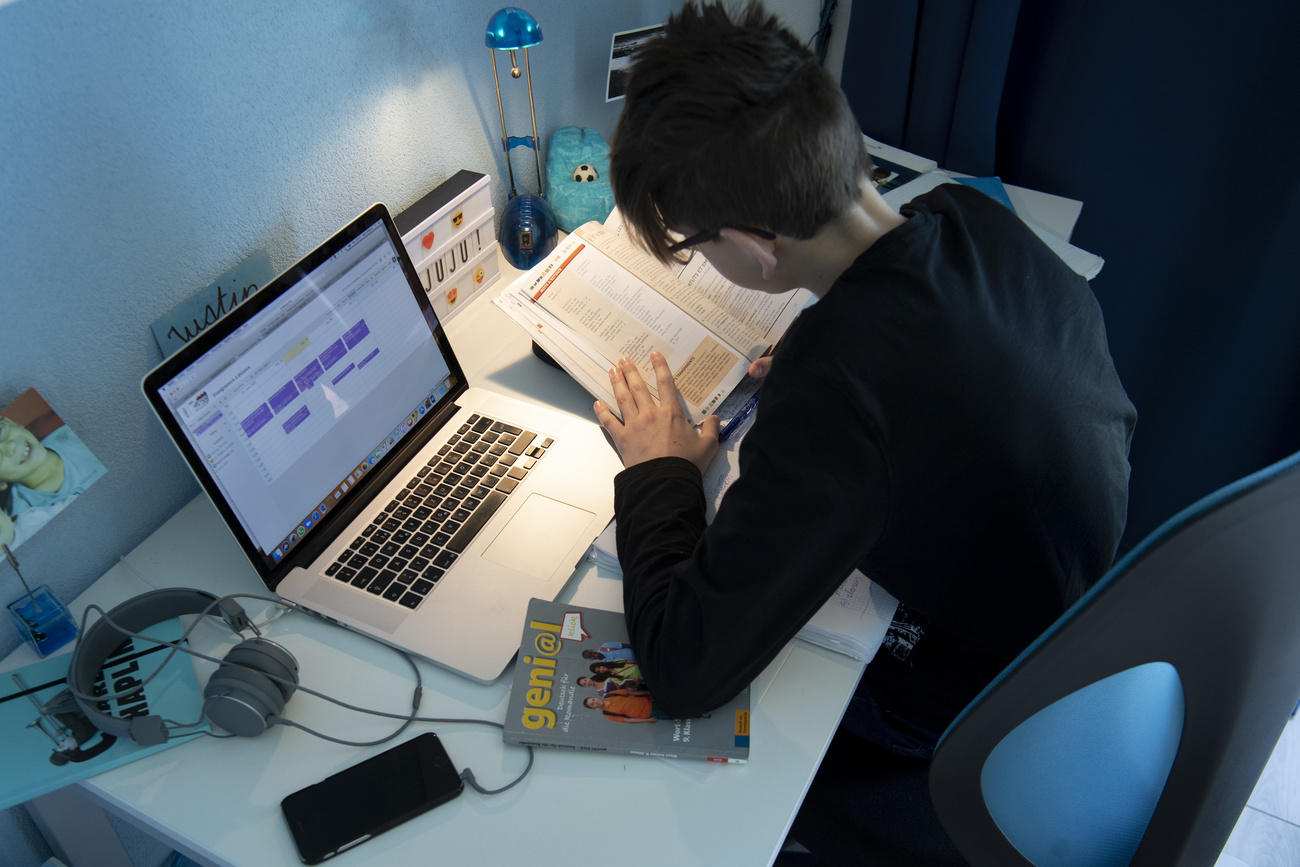
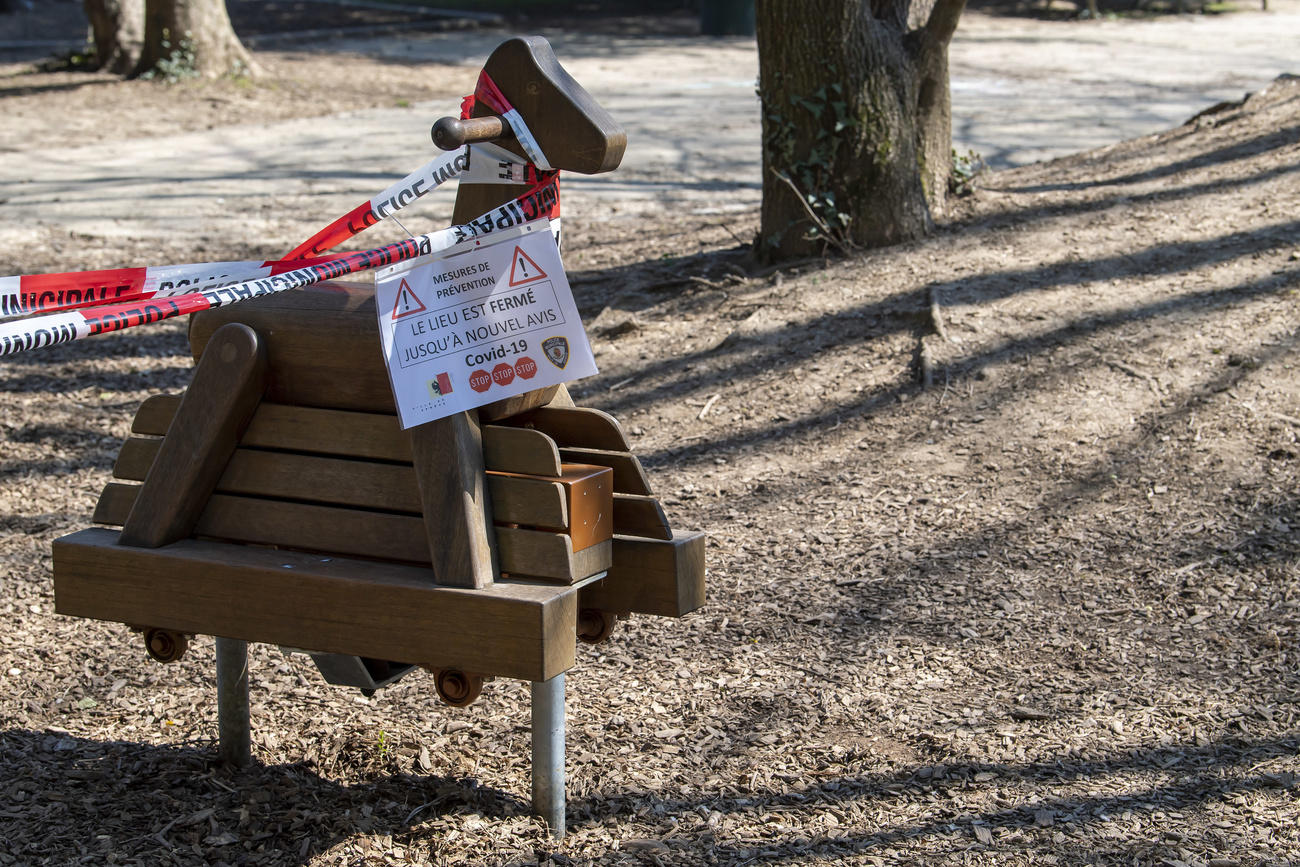
You can find an overview of ongoing debates with our journalists here. Please join us!
If you want to start a conversation about a topic raised in this article or want to report factual errors, email us at english@swissinfo.ch.